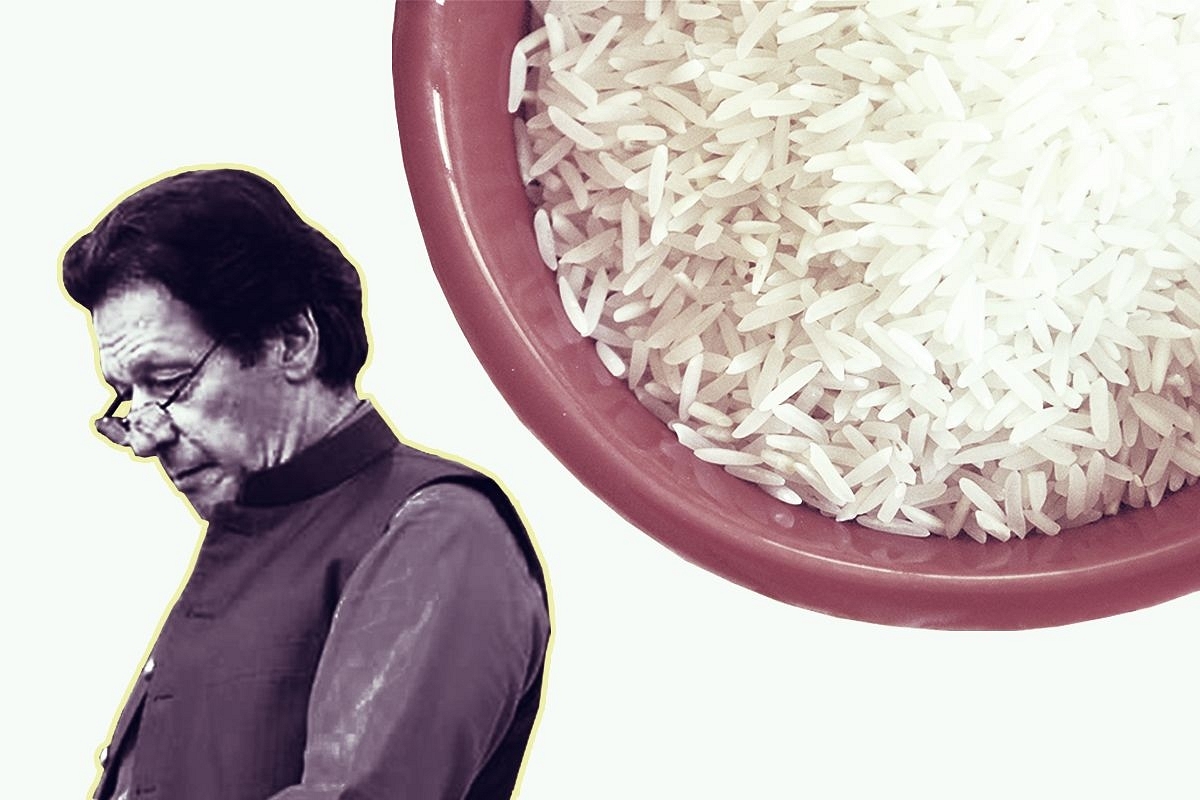News Brief
Pakistan Files Objection To GI Tag For Indian Basmati In European Union At The Eleventh Hour
- Though Pakistan managed to file its objection to a GI tag for Indian basmati rice, the Imran Khan government has a tough job on hand to provide GI tag for its own basmati.

Pakistan Prime Minister Imran Khan.
Pakistan has challenged India’s application to the European Union (EU) for geographical indication (GI) tag for its basmati rice that would provide exclusivity for its long, fragrant rice sold in the global market.
Islamabad filed its objection to the GI tag for Indian basmati yesterday (8 December) in the nick of time — 48 hours ahead of the expiry of the deadline for other countries to register their protests.
Abdul Razad Dawood, adviser to Pakistan Prime Minister Imran Khan for commerce and investment, tweeted that Pakistan has filed its objection to providing India exclusive rights on use of basmati and the government would defend its case with due diligence and commitment.
Pakistan website Profit Pakistan reported that the objection was filed through a Brussels-based international law firm Altius.
It is mandatory, according to the European Commission’s regulations, to file an objection to such application for recognition of GI in EU’s official registry, the Council on Quality Schemes for Agricultural Products and Food Stuffs, within three months. The deadline expires tomorrow (10 December).
A GI tag for basmati would mean it is exclusively grown in India or parts of the country.
The move is a significant one since the EU’s revised regulations on fungicides presence in the rice that came into force in 2017-18 resulted in Indian basmati rice losing ground.
This helped Pakistan, which competes with India in the global basmati market, to nearly double its export of the fragrant rice from 2017-18.
On the other hand, basmati exports from India have stagnated for quite some time now with the EU regulations on pesticide, in a way, affecting exports growth.
However, the problem for the Imran Khan-led government is that it has not assigned any geographical territory for its basmati rice cultivation. This is despite Pakistan Parliament passing the Geographical Indications (Registration and Protection) Act on 28 March this year.
The Imran Khan government has a tough job on hand to provide GI tag for basmati.
Basmati rice in Pakistan is grown mainly in its Punjab province and its cultivation has extended to Sindh and Balochistan provinces. Within Punjab, the traditional areas are lagging behind in production.
The cultivation of basmati rice in provinces other than Pakistan’s Punjab has diluted the exclusivity of the fragrant rice’s geographical territory. If Pakistan takes measures to demarcate the geographical exclusivity of the rice, then it would be up against regional politics from the Sindh politicians, in particular.
Thus, it will be a tough ask for Pakistan to rush through the process of demarcating areas for its basmati cultivation within the short span.
Pakistan has to prove to the EU that it has been maintaining exclusivity of its regions cultivating basmati. This also means hours will have to be spent on talks and negotiations.
On its part, though basmati is grown in various parts of India, the GI tag for the fragrant, long-grain rice has been assigned to the variety grown only in states such as Himachal Pradesh, Punjab, Haryana, Uttarakhand, outskirts of Delhi, western Uttar Pradesh and parts of Jammu and Kashmir.
India produces about 7.5 million tonnes (mt) of basmati rice and exports about 4.5 mt annually. During 2019-20, India earned Rs 34,000 crore shipping 4.45 mt basmati rice.
Introducing ElectionsHQ + 50 Ground Reports Project
The 2024 elections might seem easy to guess, but there are some important questions that shouldn't be missed.
Do freebies still sway voters? Do people prioritise infrastructure when voting? How will Punjab vote?
The answers to these questions provide great insights into where we, as a country, are headed in the years to come.
Swarajya is starting a project with an aim to do 50 solid ground stories and a smart commentary service on WhatsApp, a one-of-a-kind. We'd love your support during this election season.
Click below to contribute.
Latest